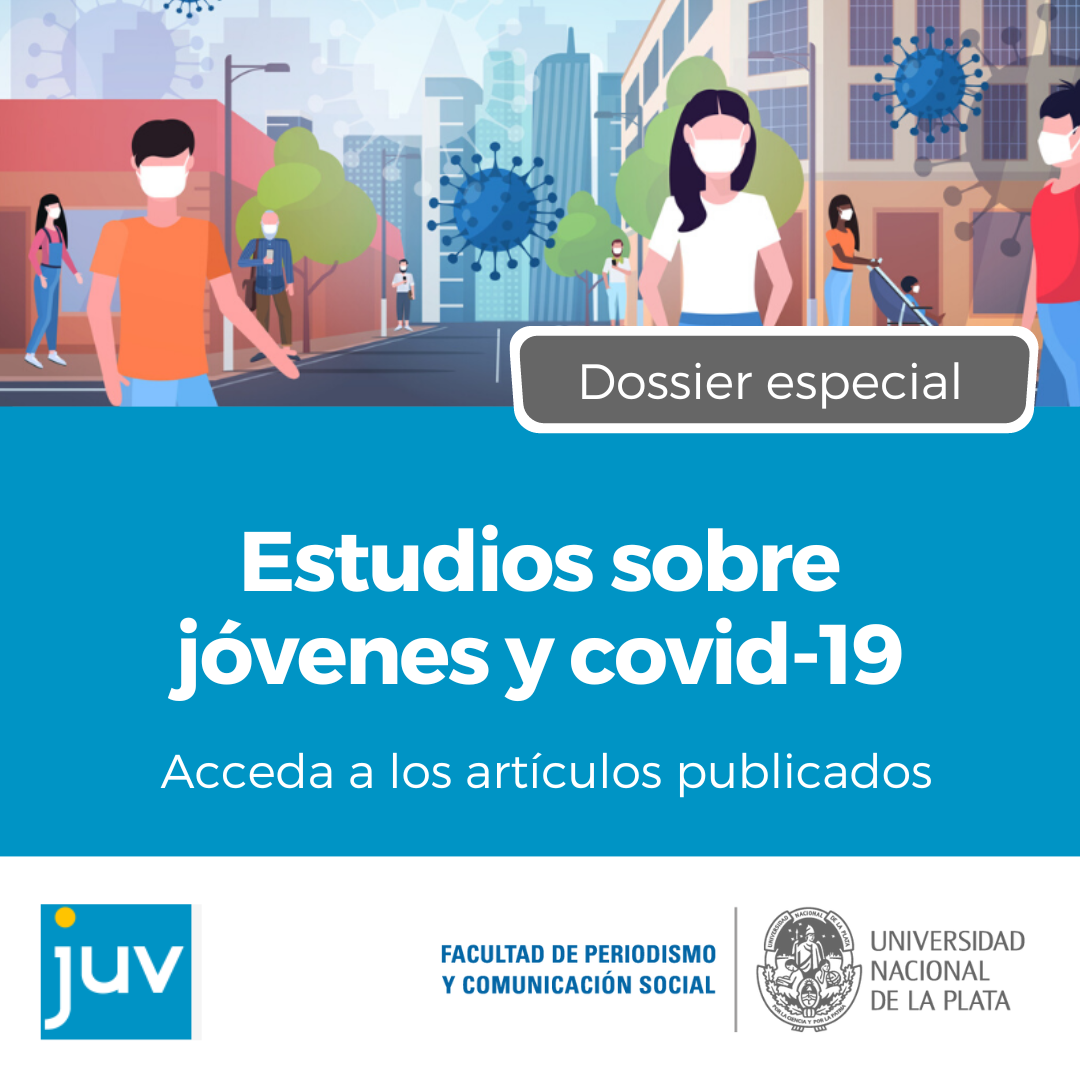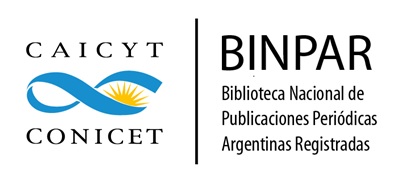First Time in Politics
The Building of Politic Commitment During High School
DOI:
https://doi.org/10.24215/18524907e084Keywords:
activism, careers, high school, politicsAbstract
The following paper analyzes the beginning of the first political commitment of high school students from the province of Buenos Aires, Argentina. In particular, it centers in the factors that contribute to the formation of dispositions and political learnings which contribute with the course of action, that is to say, in the decision to initiate an active political participation in public places. Continuity and change produced by the way of initiating the commitments between the different political generations form 1983 up to 2023.
Downloads
Metrics
References
Agrikoliansky, É. (2017). Las ‘carreras militantes’: alcance y límites de un concepto narrativo. En O. Fillieule y otros (Dirs.), Sociologie plurielle des comportements politiques (pp. 167-192). Presses de Sciences Po (PFNSP).
Artola, S. (2012). ¡El futuro ya llegó! Notas sobre el kirchnerismo, la juventud y el sujeto político. El Ojo Mocho, (2), 2-3.
Bargel, L. y Darmon, M. (2017). Socialisation politique. Moments, instances, processus et définitions du politique. https://hal.science/hal-01576832
Becker, H. (2009). Outsider: hacia una sociología de la desviación. Siglo Veintiuno.
Benedicto, J. (1995). La construcción de los universos políticos de los ciudadanos. En J. Benedicto y M. L. Morán (Eds.), Sociedad y Política. Temas de Sociología Política (pp. 227-268). Alianza.
Berardi Spairani, A. P. (2020). Participación política, compromiso y carrera militante. Una propuesta para el estudio de la militancia en el contexto del activismo global. Desafíos, 32(2), 1-37. https://doi.org/10.12804/revistas.urosario.edu.co/desafios/a.7751
Bonvillani, A., Palermo, A. I., Vázquez, M. y Vommaro, P. A. (2008). Juventud y política en la Argentina (1968-2008): Hacia la construcción de un estado del arte. Revista Argentina de Sociología, 6(11), 44-73.
Collovald, A. (2002). Pour une sociologie des carrières morales des dévouements militants. En A. Collovald (Dir.), L’huma ta r u management des dévouements. Enquête sur un mili-tantisme de ‘s dar té t r at a ’ fav ur du T rs-Monde (pp. 177-229). PUR.
Cozachcow, A. (2013). Juventudes partidarias en la Ciudad Autónoma de Buenos Aires. Motivos de participación, proyecto colectivo y proyecto individual (2012-2013). Instituto de Desarrollo Económico y Social (IDES), Universidad Nacional de General Sarmiento.
Feixa, C. (2022). Youth Cultures and Identities: The Surfaces of the Underground. En J. Benedicto, M. Urteaga y D. Rocca (Comps.), Young People in Complex and Unequal Societies: Doing Youth Studies in Spain and Latin America (pp. 177-203). Brill.
Fillieule, O. (2013). Political socialization and social movements. En D. Snow, D. della Porta, B. Klandermans y D. McAdam (Eds.), The Wiley-Blackwell Encyclopedia of Social and Political Movements. Blackwell Publishing. https://doi.org/10.1002/9780470674871.wbespm199.pub2
Fillieule, O. (2015). Propuestas para un análisis procesual del compromiso individual. Intersticios. Revista Sociológica de Pensamiento Crítico, 9(2), 197-212. https://www.intersticios.es/article/view/15549
Fillieule, O. (2020). Carrera militante. En O. Fillieule, L. Mathieu y C. Péchu (Dirs.), Dictionnaire des mouvements sociaux (pp. 91-98). Presses de Sciences Po.
Güelman, M. (2013). Las potencialidades del enfoque biográfico en el análisis de los procesos de individuación. Revista Latinoamericana de Metodología de la Investigación Social, (5), 56-68. http://relmis.com.ar/ojs/index.php/relmis/article/view/123/
Jennings, M. (2007). Political Socialization. En R. J. Dalton y H-D. Klingemann (Eds.), The Oxford Handbook of Political Behavior (pp. 29-44). Oxford Academic.
Kessler, G., Vommaro, G. y Paladino, M. (2021). Antipopulistas reaccionarios en el espacio público digital. Estudios Sociológicos de El Colegio De México, 40(120), 651-692. https://doi.org/10.24201/es.2022v40n120.2213
Kornblit, A. L. (2004). Historias y relatos de vida: una herramienta clave en metodologías cualitativas. En A. L. Kornblit (Ed.), Metodologías cualitativas en ciencias sociales (pp. 15-33). Biblos.
Lahire, B. (2006). El espíritu sociológico. Manantial.
Lahire, B. (2007). Infancia y adolescencia: de los tiempos de socialización sometidos a constricciones múltiples. Revista de antropología social, (16), 21-37.
Lahire, B. (2012). De la teoría del habitus a una sociología psicológica. CPU-e. Revista de Investigación Educativa, (14), 75-105. https://doi.org/10.25009/cpue.v0i14.30
Larrondo, M. y Ponce Lara, C. (2019). Activismos feministas jóvenes en América Latina. Dimensiones y perspectivas conceptuales. En M. Larrondo y C. Ponce Lara (Eds.), Activismos fe-ministas jóvenes. Emergencias, actrices y luchas en América Latina (pp. 21-38). Consejo Latinoamericano de Ciencias Sociales (CLACSO). https://biblioteca-repositorio.clacso.edu.ar/handle/CLACSO/11450
Larrondo, M. y Nuñez, P. (2021). From Free Bus Fare to Legal Abortion: Politics in Secondary Schools in Democratic Argentina (1983-2018). En J. Bessant, A. Mejía Mesinas y S. Pickard (Eds.), When Students protest. Secondary and High Schools (pp. 55-71). Rowman and Littlefield.
Masclet, C. (2016). Examinar los resultados intergeneracionales de los movimientos sociales: el caso de las activistas feministas y sus hijos. En L. Bosi, M. Giugni y K. Uba (Eds.), The Consequences of Social Movements (pp. 106-129). Cambridge University Press.
Meccia, E. (Dir.). (2020). Biografías y sociedad: métodos y perspectivas. EUDEBA-UNL.
Pérez, G. y Natalucci, A. (2012). Introducción: el kirchnerismo como problema sociológico. En G. Pérez y A. Natalucci (Comps.), Vamos las bandas. Organización y militancia kirchnerista (pp. 551-574). Trilce.
Pleyers, G. (2018). Movimientos sociales en el siglo XXI. Consejo Latinoamericano de Ciencias Sociales (CLACSO).
Poupeau, F. y Matonti, F. (2007). El capital militante. Intento de definición. En F. Poupeau (Dir.), Dominación y movilizaciones. Estudios sociológicos sobre el capital militante y el capital escolar (pp. 37-44). Ferreira Editor.
Roizen, G., Vázquez, M. y Kriger, M. (2021). “Y ya con eso del mural me metí...”. Ingresos a la militancia en el marco del Programa “Florecen mil flores, pintamos mil escuelas” (JP Evita CABA, 2010-2012). Trabajo y Sociedad, 22(36), 425-444.
Rossi, F. M. (2019). Conceptualising and tracing the increased territorialization of politics: insights from Argentina. Third World Quarterly, 40(4), 817-837. https://doi.org/10.1080/01436597.2018.1465815
Sautu, R. (1999). Estilos y prácticas de la investigación biográfica. En R. Sautu (Comp.), El método biográfico. La reconstrucción de la sociedad a partir del testimonio de los actores (pp. 21-59). Editorial de Belgrano.
Saferstein, E. y Goldentul, A. (23 de mayo de 2022). La batalla cultural de las nuevas derechas. Anfibia. https://www.revistaanfibia.com/javier-milei-la-batalla-cultural-de-las-nuevas-derechas/
Strauss, A. y Corbin, J. (2016). Bases de la investigación cualitativa: técnicas y procedimientos para desarrollar la teoría fundamentada. Universidad de Antioquia.
Vázquez, M. (2016). Juventudes, políticas públicas y participación. Un estudio de las producciones socioestatales de juventud en la Argentina reciente. Grupo Editor Universitario (GEU), Consejo Latinoamericano de Ciencias Sociales (CLACSO).
Vázquez, M. (2022) ¿El rugir de los leones? Participación juvenil y nuevas derechas durante la pandemia. En P. Vommaro (Ed.), Experiencias juveniles en tiempos de pandemia ¿Cómo habitan la pandemia las juventudes y qué cambió en su vida cotidiana? (pp. 111-124). Grupo Editor Universitario.
Vommaro, P., Larrondo, M., Nuñez, P. F. y Vázquez, M. (2021). Juventudes y configuraciones generacionales de la política. Un análisis comparativo entre los años ochenta y los dos mil. En M. Kriger (Comp.), La buena voluntad. El vínculo de jóvenes argentinxs con la política, entre dos paradigmas de Estado (pp. 181-212). Consejo Latinoamericano de Ciencias Sociales (CLACSO) / Instituto de Desarrollo Económico y Social (IDES).
Vommaro, G. y Morresi, S. D. (2014). Unidos y diversificados: la construcción del partido PRO en la CABA. Revista SAAP, 8(2), 375-417. http://www.scielo.org.ar/scielo.php?script=sci_arttext&pid=S1853-19702014000200002&lng=es&tlng=en
Additional Files
Published
How to Cite
Issue
Section
License
Copyright (c) 2024 Marina Larrondo

This work is licensed under a Creative Commons Attribution-NonCommercial-ShareAlike 4.0 International License.
The acceptance of an original by the journal implies the non-exclusive transfer of the patrimonial rights of the authors in favor of the publisher, who allows the reuse, after its edition (postprint), under a Creative Commons License Attribution-NonCommercial-ShareAlike 4.0 International.
According to these terms, the material can be shared (copy and redistribute in any medium or format) and adapted (remix, transform and create another work from the material), provided that a) the authorship and the original source of their publication (magazine and URL of the work) are cited, b) is not used for commercial purposes and c) the same terms of the license are maintained.
The assignment of non-exclusive rights implies that after postprint in Revista Argentina de Estudios de Juventud authors may publish their work in any language, media and format; in that case, it is requested that they signal that the material was originally published by this journal.
Assignment also entails the authors’ authorization for the work to be collected by SEDICI, the institutional repository of the Universidad Nacional de La Plata, and for it to be indexed in the databases that the publisher thinks appropriate for enhancing the visibility of the published work and its authors.
In addition, the journal encourages authors to submit their works to other institutional and thematic repositories after their publication in Revista Argentina de Estudios de Juventud, under the assumption that offering society unrestricted access to scientific and academic production contributes to a greater exchange in global knowledge.














.png)

























